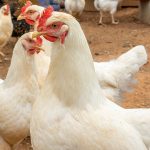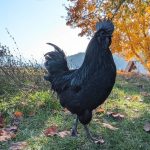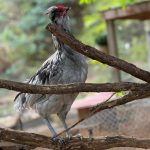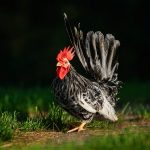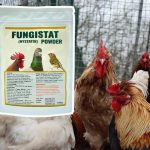Pavlovskaya Chicken: All You Must Know
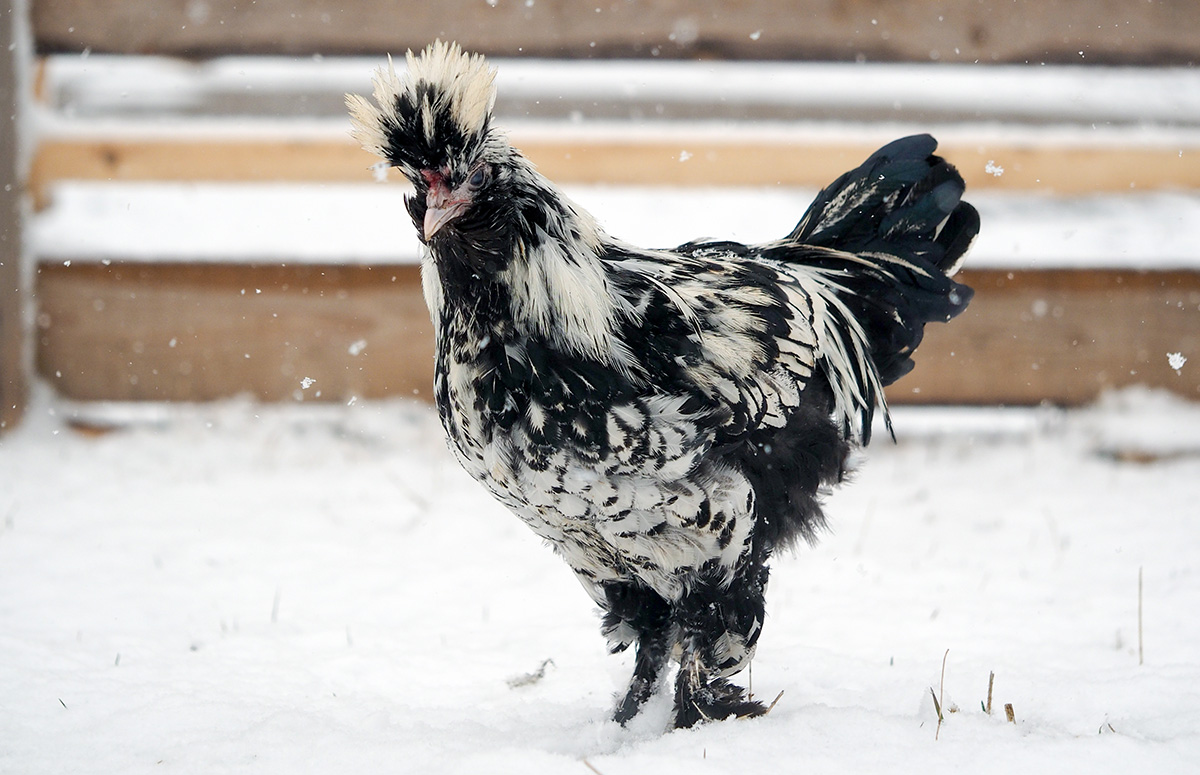
If you’ve never heard of the Pavlovskaya chicken before, don’t worry. The breed is very rare and unknown, even with chicken keepers. It’s a crested breed with outstanding looks and extremely cold hardiness.
Let’s find out everything about this rare breed, and we’ll start with some key takeaways.
- Pavlovskaya hens lay up to 90 eggs per year
- Russian rare and uncommon breed
- Crested chicken, that’s known to be highly cold-hardy
- Friendly and docile nature
| Eggs | Between 60 – 90 eggs per year |
| Egg Color | Tinted |
| Egg Size | Medium |
| Weight | 3 – 4 lbs |
| Hardiness | Cold |
| Temperament | Docile and friendly |
| Beginner-friendly | Yes |
| Color | Varies |
Characteristics
The Pavlovskaya chicken has a very distinctive appearance with its feathered feet and crest of feathers. They look very exotic but are not the best egg-layers or meat birds.
Therefore, the breed is mainly kept as an ornamental bird or for breeding purposes. Keeping a Pavlovskaya chicken helps to save the breed and to spread their offspring around the world.
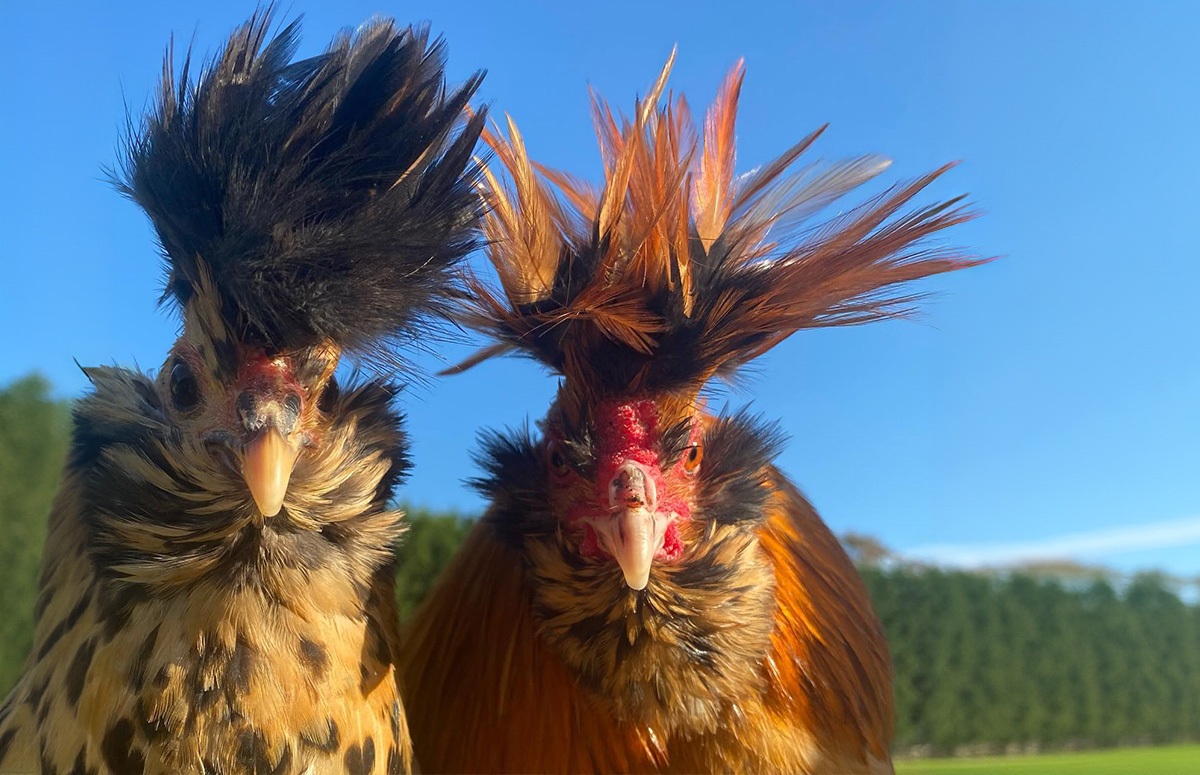
All Pavlovskaya chickens have distinctive tuft or crest of upward-pointing feathers on the head, which looks much like a Polish chicken‘s crest.
The crest often hides their v-shaped comb.
Their dark-colored legs are feathered, similar to the feet-feathering found on wild grouse.
The breed comes in various colors, including Black, Gold, Silver, and White. They’re a light breed with a nearly horizontal body, a large beard, and a muff.
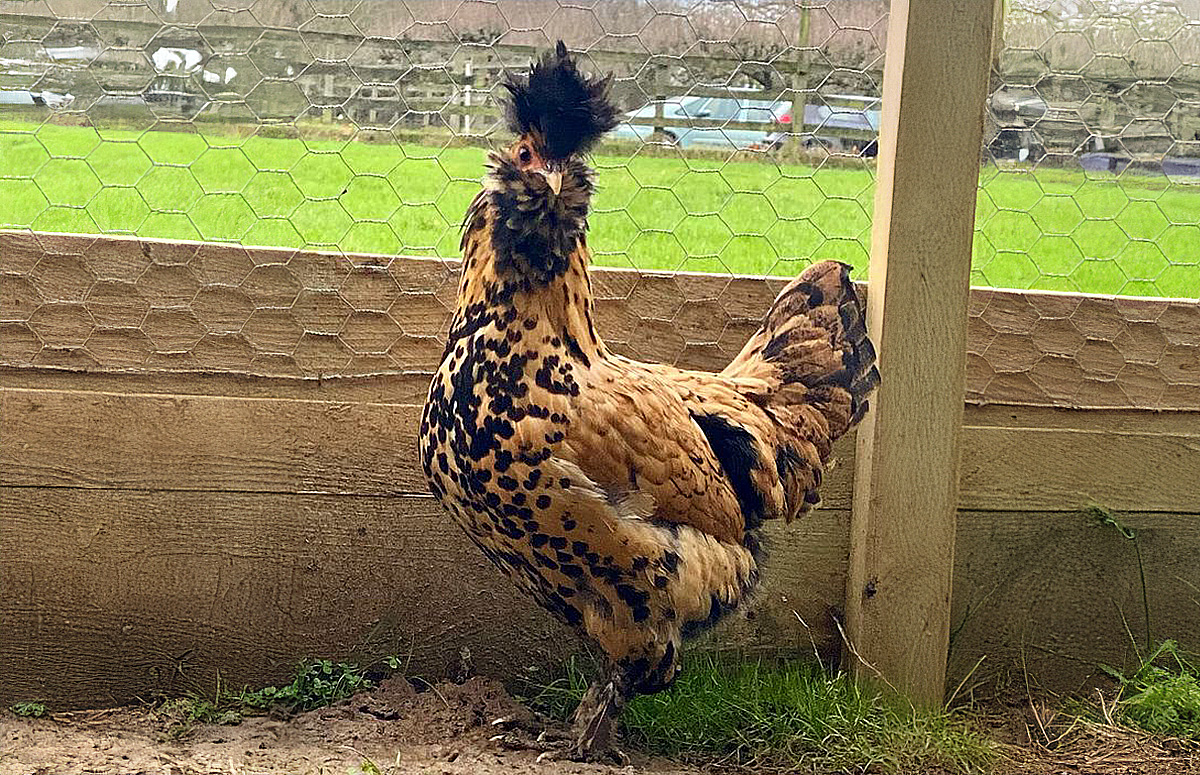
Roosters weigh approximately 4 pounds (1.8 kg), and hens around 3 pounds (1.4 kg).
Egg production
Pavlovskaya chickens are not good egg layers; hens only lay between 60 and 90 eggs yearly. That’s two eggs per week or less.
All eggs are medium-sized and vary in color from white to cream to tinted.
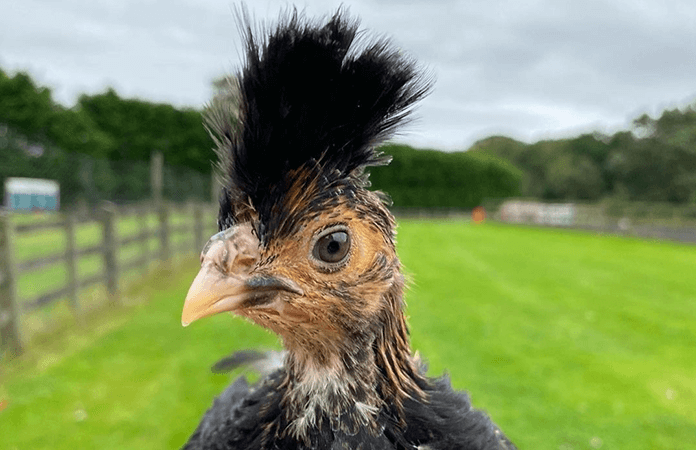
They don’t lay many eggs, and the chickens are too small to be good meat birds. This makes them less interesting for small farms or homesteads looking to live self-sufficient.
The breed is not especially known for being broody, but it happens occasionally, and the hens make excellent mothers.
Personality
Next to its striking appearance, the Pavlovskaya chicken is praised for its gentle and docile nature.
They make great pet chickens and get along with other breeds. However, it’s best to keep Pavlovskaya chickens with other soft and friendly breeds, like Orpingtons or Silkies.
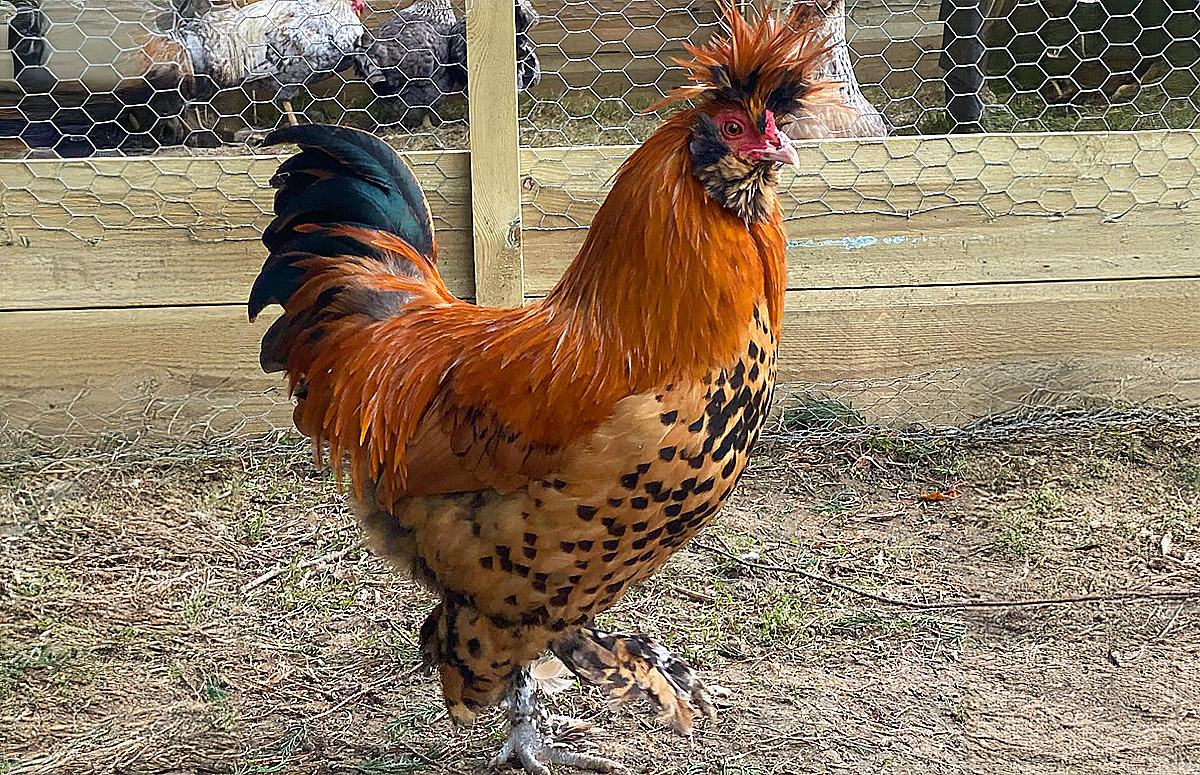
They love to free-range but are also fine in confinement; however, they need enough space inside the run to roam around.
If you’re unsure how much space your Pavlovskaya chicken needs, check out our ‘Coop and Run Size Calculator‘ for the minimum requirements.
Hardiness
The breed is known to be extremely cold-hardy.
The winters in Russia, where this breed finds its origin, can be harsh, so it adapted itself to stand these kinds of extreme temperatures.
They don’t do well in hot summers, which is something to keep in mind when living in a tropical environment. Always take precautions when a heat wave is on its way.
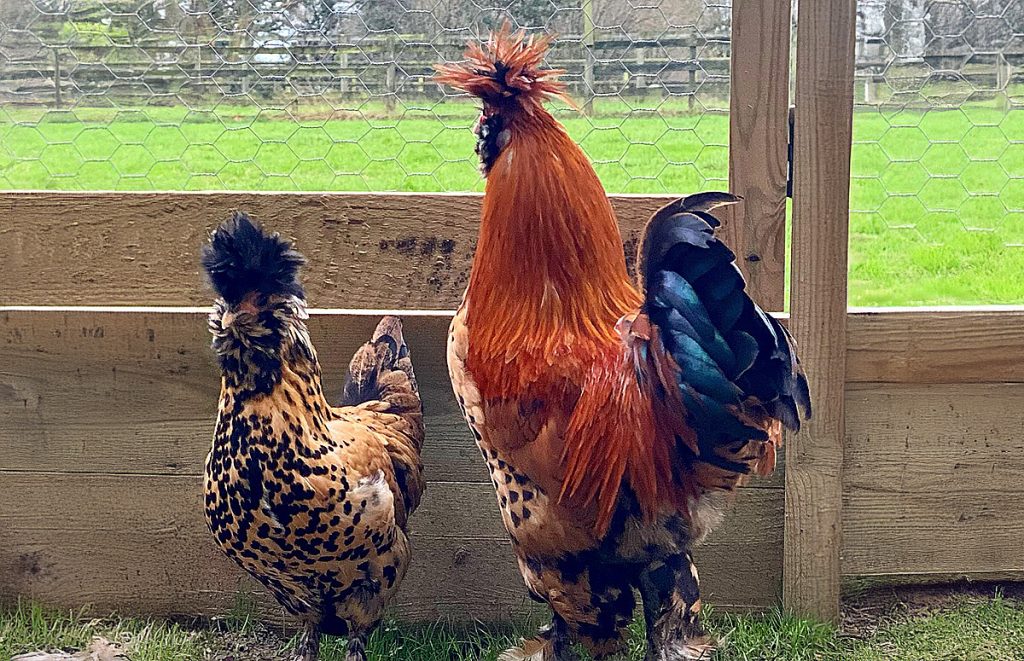
Pavlovskaya chickens are a healthy breed that doesn’t need much extra care other than food, water, and shelter.
They’re not susceptible to diseases but always look for common health issues in chickens like Coccidiosis, Sour Crop, or Infectious laryngotracheitis.
How Much Does a Pavlovskaya Chicken Cost?
The price of a Pavlovskaya chicken depends on whether you’re looking for fertilized eggs or a chick.
One fertile egg will cost you between $10-20, and a day-old unsexed chick is around $20-50.
There are only a few known breeders worldwide, and the waiting time for a Pavlovskaya chick is long, up to one year.

The breed will be a great asset to your flock, but you’ll have to be patient to get your hands on one.
In the US, the Pavlovskaya chicken is sold by Greenfire Farms, a non-commercial hatchery of rare breeds. They state that they ‘hatch fewer than a few hundred Pavlovskaya chicks each year. ‘
The price seems okay, but you’ll have to remember there will be a waiting list.
History
The Pavlovskaya chicken is one of the oldest Russian chicken breeds.
It’s a rare breed that was almost extinct in the 1880s. At one point, only two roosters of the Pavlovskaya remained, and one was infertile.
The breed could be saved from total extinction by breeding the remaining fertile rooster with mixed but similar-looking hens.
However, it remains very rare today.
Whether the breed really originates in Russia is uncertain, but the fact is that a Russian scientist first documented the breed in the 18th century.
They were named after the place of discovery, Pavlovo, a Russian village east of Moscow.
Summary
If you’re looking for a stunning chicken that’s rare and unique, the Pavlovskaya is exactly what you need. They look breathtaking with their crested feathers and lovely colors. But they’re not good egg layers or good meat birds, making them only suitable as ornamental birds.
They’re a hardy breed that stands cold weather very well. They are healthy and easy to take care of, making them a beginner-friendly breed.
Keep in mind when purchasing fertilized Pavlovskaya eggs or ordering a day-old chick, there is a waiting list at most hatcheries.
To learn more about chicken breeds, check out our ‘Chicken Breeds Page‘ to see every specific breed we address. Or go to our listicle breed summary on ‘The Classroom‘, or, if you’re unsure where to start, take a look at our ‘Chicken Breeds: Ultimate Beginners Guide‘.
Or, if you haven’t had enough of fluffy chicken breeds, check out our article ‘10 Fluffy Chicken Breeds That Are Kid Friendly‘.
Credits Featured Image: @hensonoxney (IG)

